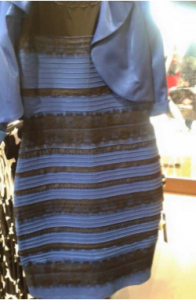What you do not understand is that "going to the same human person and asking him" is not a meaninful test because the outcome of this test would be compatible both with the hypothesis "he was another person/mind" and the hypothesis "he was an imaginary character created unconscious by own mind" ;in fact also the imaginary character created by your own mind could conferm that such conversation occured (and by the way, another person could lie and deny that such conversation occurred).
The MDR hypothesis context acknowledges the evidence for: different minds perceiving things differently, so this is no problem as far as it is concerned. It also generally defers and constrains to healthy (or normal) minds. These variances are objectively testable.
An
‘imaginary character’ would not produce consistent results amongst the population of these other minds. (Beliefs are distinguished and 'neutralised' in science).
Objectivity still operates within the MDR hypothesis I'm referring to .. it relies on like-thinking (scientifically) minds. If this were not so, your problem then arises. It doesn’t in the MDR hypothesis, because that’s what the concept of objectivity applied in testing does. In MDR the concept has to do with consistencies between the senses. So the underpinnings of objectivity has much to do with the concept of consistency, but this is certainly not a simple concept.
I think the bottom line here is, science will always be done by like-minded people, and the consistency they seek will be of a particular kind, but it will never be able to be
proven to be a universal or absolute form of consistency. (The belief in the existence of a physical, truly independent universe, such as Realism’s however, is simply untestable in science but its still mind dependent .. so such a belief makes no impact on the outcomes of objective testing).
The bottom line is: if you understand what
scientific consistency is, you will be able to be a scientist, and if you do not, you won't, but there's not a whole lot more that can be said without some semblance of basic common ground on this aspect.
mmarco said:
According to your concept of test, also the following hypothesis would be testable and thereofore scientific: "Our perceptions of the external reality are created by God according to a constant regularity that we call natural laws". I can make the following test: I make an experiment today, and then I repeat the same experiment tomorrow and I see if the results are compatible.
Of course this would not be a meaningful test, because its outcome would be compatible also with the hypothesis that the regularity of the natural laws has not been created by God.
I would word the both hypotheses differently by including operationally defined terms. For example, the second one might say:
'The regularity of the natural laws might depend on how like thinking minds work' (thus eliminating the attempt of trying to gather evidence of something which itself, is objectively untestable in the first place .. Ie: the external agency). Your first hypothesis contains nothing but non-operational definitions.
The contrast point you are making with the null hypothesis however, doesn't acknowledge the evidence of the similarities and differences amongst minds we observe from the very outset. The MDR hypothesis explicitly states this, not as some ’true’ assumption, but an objectively testable one .. and this
context is clearly missing in your hypothetical comparison. (Contexts are all-important for the minds which create meanings and the context here is
consistent .. which makes the meanings
useful).
mmarco said:
I am not saying you are on about solipsism, I am saying that you are making an arbitrary assumption (existence of other minds) and that you have no meaninful tests for such assumption.
They're not
'arbitrary' assumptions .. they're
objectively testable assumptions, (which test out well), with the inclusion of evidence of other
objectively thinking scientific minds. Science isn’t pure philosophy .. its purpose is to be useful and its been very successful at doing that. (The computer you’re using is my evidence for that claim).
Your excursion to the hypothetical extremes of solipsism, invokes
absolutes in making its points of exclusions and invokes external agencies .. the MDR hypothesis doesn't do any of that because it accepts the evidence of variances of similarities and differences amongst a population of normal healthy, scientifically thinking minds when they perceive, then describe, in-common concepts via language. This is the context of the testable definitions (meanings) we assign to other instances of similar, but varying
’other human minds'.
Science is a subject well distinguished from pure philosophies, as it doesn't invoke untestable, ('believed in'), external agencies in developing
usefulness.
Perhaps my version of what science is, doesn’t satisfy those who seek to defeat the belief in a mind independent God .. but that was never my purpose .. nor was it ever part of the scientific method’s. This is why science is available to anyone who holds religious beliefs .. which makes it a terrifically unifying (and
not an
exclusive) concept, no?

